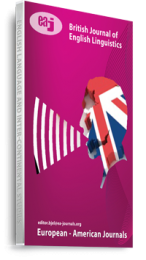The present study is a quantitative analysis of refusal strategies in Canadian English. Some 32 university students and native speakers of Canadian English were randomly selected for the study. A written questionnaire, in form of Discourse Completion Task, was used to elicit refusals from the participants. The overall findings suggest that the participants use direct refusals, indirect refusals and adjuncts to refusals to decline invitations, offers, and requests. It was found that the respondents mostly prefer indirect refusals. Statistical differences also emerge with respect to the use of direct refusals, indirect refusals, and adjuncts to refusals when declining offers, invitations and requests. The analysis also reveals preferences with respect to realization types of the three major pragmatic strategies. The most common direct refusal strategy employed to decline invitations and requests is the expression of inability to accept the invitations or requests, while “no” is the most preferred direct strategy to refuse offers. The findings also suggest that the respondents make different choices regarding the three most frequently used indirect strategies to decline invitations, offers, and requests. The results also show that expressions of willingness and expressions of gratitude are the most common adjuncts employed with direct and indirect refusals. Finally, the analysis reveals that factors such as degree of familiarity and power distance also have an impact on the distribution of the refusal strategies. The limitations of the study’s findings are highlighted, and directions for future research outlined.
Keywords: Canadian English, Refusal Strategies, Regional Variation

